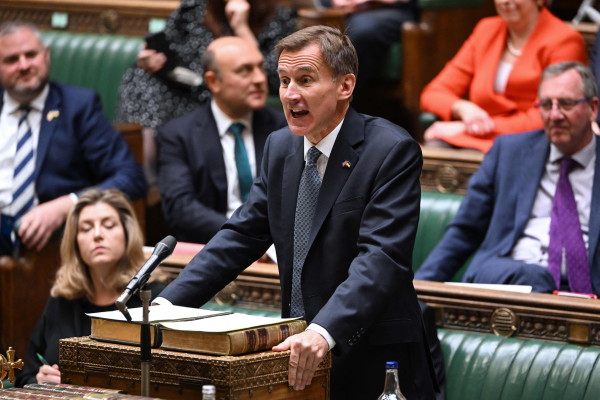

After a chaotic start for the new chancellor, it is perhaps not surprising that yesterday's three-pronged catchphrase included “stability” in the face of “unprecedented global headwinds” as a priority for the new Treasury team.
For tax changes affecting individuals, the chancellor kept things relatively ‘modest’, in line with his theme of British-value-driven fiscal responsibility (and likely an intentional attempt to comfort the economy and markets that he is taking a radically different approach to Kwasi Kwarteng).
The chancellor’s announcements on taxes were spookily close to pre-announcement rumours.
The main change, a reduction in the 45 per cent tax threshold from £150,000 to £125,140, means that the largest increase in income tax is borne by those with the broadest shoulders (and is expected to raise £3.7bn over the next six years).
Rishi Sunak in his previous tenure as chancellor had already frozen the personal allowance at £12,570 (the amount of
tax-free income) and the basic rate (20 per cent) threshold at £37,700 until April 2026.
However, this was prior to 40-year record breaking inflation. Mr Hunt has extended this freeze for an additional two years
to April 2028.
The effect of the freeze is two-fold: firstly, although if income remains the same, the taxpayer suffers no additional tax, the value of the pound in their pocket is reduced by inflation.
Secondly, as salaries are forced up by inflation, more people will be pushed into higher tax bands, increasing their tax
liabilities, and again reducing their purchasing power.
The primary National Insurance contribution threshold (the amount above which NIC begins being paid on earnings) will also remain frozen until 2028, along with the NIC threshold above which employers pay on their employees’ salaries (meaning businesses will also suffer from these “stealth tax” measures).
Following the same theme, the nil-rate band for inheritance tax at £325,000 (the amount of wealth that can be passed on death free of IHT) and residence nil rate band at £175,000 (an additional IHT allowance for passing on an individual’s main home) will remain frozen until 2028 too.
This means more families will suffer IHT simply due to asset price inflation.
The chancellor would also like those receiving “unearned” income to contribute an increased tax take: the dividend allowance will decrease from £2,000 to £1,000 from April 2023, and to £500 from April 2024.
Similarly, the capital gains tax annual exempt amount will decrease from £12,300 to £6,000 from April 2023 and to £3,000 from April 2024.
The government expects these measures will raise more than £1.2bn a year from April 2025. The cost to individual investors and business owners is further compounded by the 1.25 per cent increase in the three dividend tax rates announced by the government last Autumn.
These reductions in tax-free allowances unfortunately means dragging individuals with modest levels of investments into the self-assessment regime.
HMRC had previously estimated the initial reduction of the CGT annual exempt amount would result in 235,000 more individuals needing to report a capital gain, and we estimate 4.3mn additional individuals will need to file due to the reduction in the dividend allowance.
Whilst many MPs have been outspoken about punitive changes to CGT, as it could dampen the entrepreneurial spirit and slow the movement of capital, the chancellor’s relatively limited changes may not impact taxpayer behaviour all that much.
On a more positive note, the government has set out a series of targeted support measures for the most vulnerable households, such as a means tested £900 cost-of-living payment, payments to help with energy bills, and an increase in the national living wage by 9.7 per cent to £10.42 an hour from April 2023 –measures that will be welcomed by many individuals and families.
Chris Down is a private client tax manager at RSM UK




